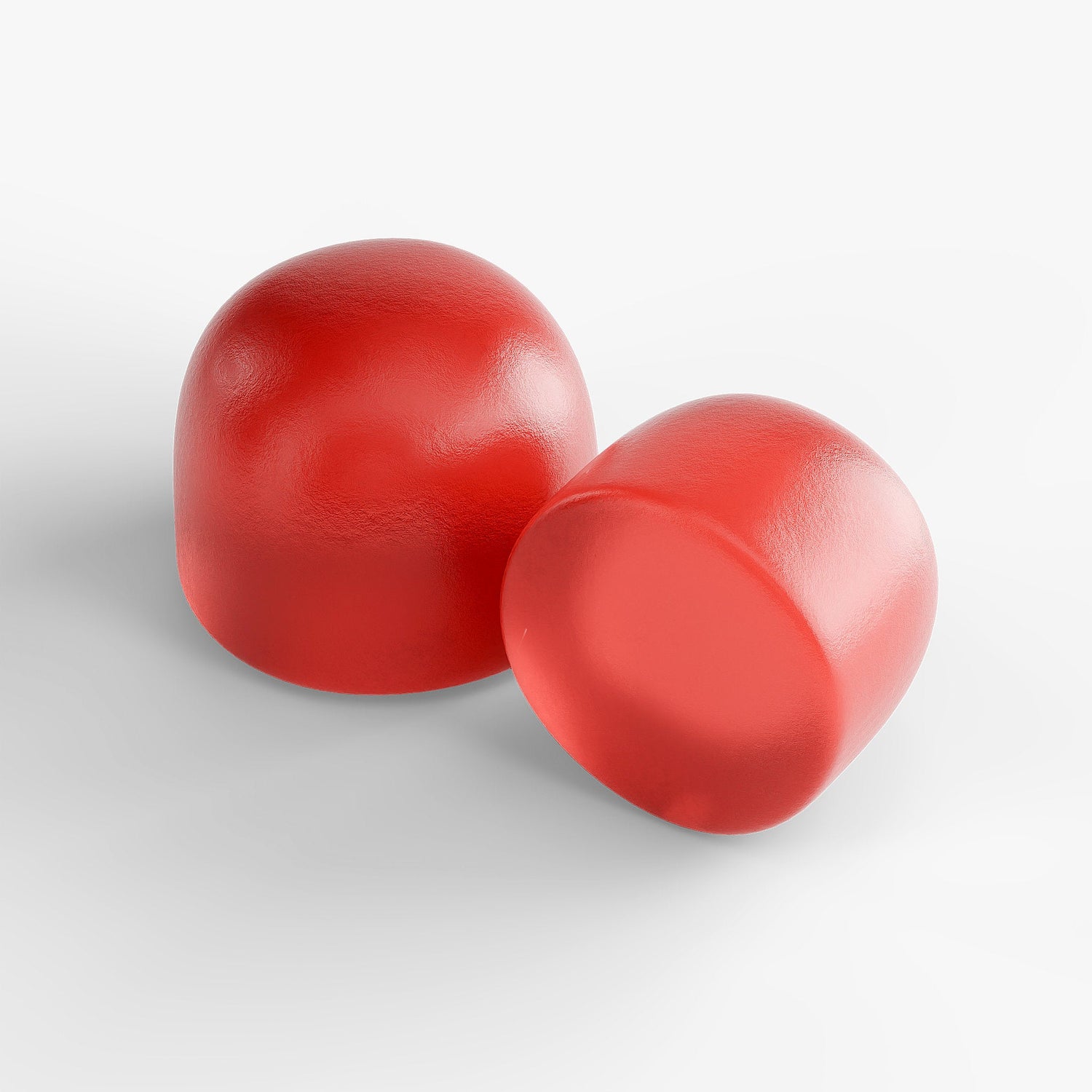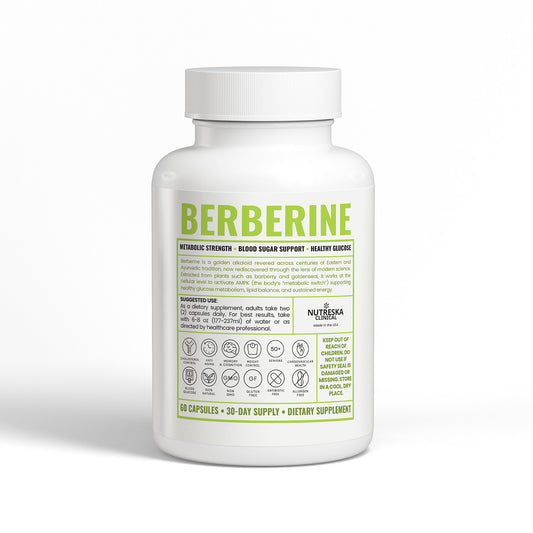What Is Resveratrol?
Resveratrol is a natural polyphenolic compound (specifically, a stilbenoid) produced by plants—especially grape skins, berries, peanuts, Japanese knotweed, and others—when under stress mskcc.org+2medicalnewstoday.com+2health.com+2en.wikipedia.org. In its most potent form, trans-resveratrol, it’s been studied across over 13,000 scientific publications since its cancer-fighting potential emerged in Jang et al.’s seminal 1997 paper mdpi.com
Its synthetic cousin—cis-resveratrol—also exists, though the trans-form demonstrates the most biological activity pmc.ncbi.nlm.nih.gov+15en.wikipedia.org+15frontiersin.org+15
Resveratrol Sources: Not Just Wine
- Red wine: Often associated with resveratrol, it contains between ~0.2–5.8 mg/L depending on grape variety and processing eatingwell.com+3en.wikipedia.org+3es.wikipedia.org+3
- Red grapes (particularly skins): 0.24–1.25 mg per cup sciencedirect.com+12en.wikipedia.org+12thesun.co.uk+12
- Peanuts & peanut butter: Between 0.01–0.26 mg per cup raw, though sprouts can boost content.
- Blueberries, cranberries, mulberries: Significant—but variable—resveratrol content mdpi.com+9frontiersin.org+9eatingwell.com+9
- Dark chocolate/cocoa: Offers modest resveratrol but rich in other flavonoids thesun.co.uk+3es.wikipedia.org+3en.wikipedia.org+3
- Japanese knotweed (Polygonum cuspidatum): Used in many supplements; extract often 50–99% pure resveratrol news-medical.net+15es.wikipedia.org+15webmd.com+15
Beyond Red Wine: Smart Food Sources
A recent EatingWell roundup highlights grapes, walnuts, blueberries, cranberries, and peanuts as top sources, with advice to avoid relying on alcohol for resveratrol intake en.wikipedia.org+4eatingwell.com+4thesun.co.uk+4
Health Benefits of Resveratrol
Research suggests a range of potential benefits:
1. Cardiovascular Health
Animal and human studies indicate resveratrol supports heart health via antioxidant, anti-inflammatory mechanisms and can improve vascular health and microbiota balance. A meta-analysis found ~2 mmHg systolic BP drop at ~300 mg/day—but mainly in diabetics en.wikipedia.org
2. Anti‑Inflammatory & Antioxidant
Resveratrol’s polyphenolic structure lets it chelate free radicals and inhibit pro‑inflammatory pathways (e.g., TNF-α, COX-2, NF-κB). These actions may reduce chronic disease risk linked to inflammation.
3. Anti‑Cancer Potential
In vitro and animal studies show resveratrol can inhibit tumor initiation and promote cancer cell apoptosis. Human data remain inconclusive, though an NHS trial is investigating resveratrol's role in preventing bowel cancer in people with polyps thesun.co.uk
4. Neuroprotection & Anti‑Aging
Studies in cell cultures and rodents suggest benefits for Alzheimer’s: reducing amyloid accumulation, inflammation, and supporting memory. Resveratrol activates longevity pathways (e.g., SIRT1), though human lifespan impacts are not proven.
5. Metabolic Regulation & Anti‑Diabetic Properties
Human meta-analyses show slight benefits: improved fasting glucose, insulin sensitivity, reduced HOMA-IR, weight, BMI. However, larger trials still show mixed results frontiersin.org
6. Gut Health
Preclinical studies show resveratrol alters gut microbiota toward anti-inflammatory profiles, potentially enhancing immune health frontiersin.org
7. Other Potential Benefits
May improve sperm motility and reproductive health (sciencedirect.com) and aid in postmenopausal bone health and endocrine balance. Emerging evidence hints at benefits in muscle recovery, cognition, and even endometriosis pain when combined with other nutraceuticals .
Limitations & Challenges
Bioavailability: It’s poorly water-soluble and rapidly metabolized (half-life ~10–14 minutes, 0.5% bioavailability).
Effective dose translation: Many lab benefits use high concentrations not feasible with diet alone. You’d need several liters of red wine daily to reach ~1 g/day.
Clinical evidence: Strong support exists from animal/cell models; human results are promising yet inconsistent.
Formulation tech: Nanoemulsions, liposomes, and other delivery methods are in development to improve absorption.
Resveratrol Dosage: What Do Humans Take?
There's no universally recommended dose, but typical supplement ranges are:
- Low-dose: 10–200 mg/day (MedicineNet) medicinenet.com
- Medium-dose trials: 150 mg/day for obese adults showed no adverse effects drugs.com
- High-dose studies: Up to 2–5 g/day tolerated short-term (2–6 months), but often accompanied by GI upset.
- Toxicity thresholds: GI distress begins ≥1 g/day; doses ≥2.5 g/day linked to nausea, diarrhea, liver dysfunction.
- Safe upper bound: Many sources safely cite up to 5 g/day short-term, but long-term safety remains unstudied.
Side Effects & Safety
Resveratrol is generally well-tolerated at low doses, but caution is warranted:
- GI symptoms (nausea, vomiting, diarrhea, gas, abdominal pain) are most common at high doses
- Liver or renal concerns at doses ≥2.5 g/day—especially in people with existing liver disease
-
Drug interactions:
- Can inhibit CYP enzymes and transporters, potentially increasing levels of medications like warfarin—raising bleeding risk webmd.com+15mskcc.org+15pmc.ncbi.nlm.nih.gov+15
- Long-term unknown: Human long-term safety not established due to lack of trials beyond a few months
- Rare toxic events: Reported fatal outcomes in rodents at extremely high doses
- Bottom line: For most healthy adults, ≤200–500 mg/day is considered low- to moderate-risk. Higher dosages require medical supervision
Better Absorption & Formulation
Thanks to its poor bioavailability, researchers are working on ways to enhance resveratrol delivery:
- Nanoemulsions, micelles, liposomes, and phospholipid complexes are in development
- Some supplement brands advertise formulas designed for extended release or enhanced absorption—just be sure third-party tested for purity.
Choosing a Resveratrol Supplement
If you decide to supplement:
- ✅ Look for clinically studied doses (150–500 mg).
- ✅ Choose brands tested for contaminant-free purity (USP, NSF, ConsumerLab).
- ⚠️ Avoid claims promising radical anti‑aging or disease cures.
- ⚖️ Check for added fat (which can improve absorption).
- 👩⚕️ Discuss with your doctor, especially if pregnant, on blood-thinners, or on chronic medications.
Practical Tips: Getting Resveratrol Through Diet
- Include grape skins, berries, peanuts, dark chocolate, and walnuts regularly—paired with whole food synergy en.wikipedia.org+3eatingwell.com+3health.com+3
- Just a handful of peanuts or walnut halves with berries daily is simple, tasty, and safe.
- Red wine is an option—but its alcohol and calorie content may outweigh modest resveratrol benefits eatingwell.com
Resveratrol & Anti-Aging: Hype vs. Hope
Lab studies suggest resveratrol activates longevity genes (like SIRT1), protects neurons, reduces inflammation, and improves metabolic profiles foodandwine.com+9frontiersin.org+9es.wikipedia.org+9
But in humans:
- No conclusive lifespan extension has been demonstrated en.wikipedia.org+1eatingwell.com+1
- Cognitive benefits: Some preliminary data hint at better memory and mood, especially in Alzheimer’s or mild cognitive decline en.wikipedia.org
- Metabolic benefits: Mixed; small reductions in fasting glucose and weight seen, but not consistently .
➡️ Bottom line: Antioxidant, anti-inflammatory, metabolic, and neuroprotective signals are promising—but real-world anti-aging efficacy is still unresolved in humans.
🌿 Experience the Power of Resveratrol—The Nutreska Way
At Nutreska, we don’t believe in shortcuts—only science-backed nutrition that supports real people living real lives. Our Resveratrol+ formula combines high-purity trans-resveratrol with bioavailability-enhancing ingredients to help your body absorb more of what matters. Whether you’re looking to support heart health, healthy aging, or clearer thinking, Nutreska Resveratrol+ is designed to work with your body, not against it.
- 💊 Clinically relevant dosage (250 mg)
- 🌱 Plant-based, non-GMO, and third-party tested for purity
- 🚀 Enhanced absorption with added quercetin and healthy fats
- 💚 Clean-label promise: no artificial fillers, colors, or mystery additives
Your wellness journey deserves more than hype—it deserves honesty, transparency, and results.
Explore Nutreska’s Resveratrol+ today and take the first step toward vibrant, supported longevity.









